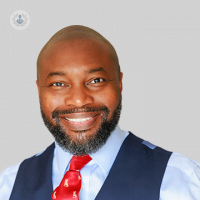Microvascular surgery: how does it work?
Written by:Microvascular surgery involves taking tissue from one area of the body to reconstruct areas of a body that have been affected by cancer or by trauma. Recent innovations in this procedure have allowed for miraculous results, transforming the lives of many.

We recently got in contact with Mr Kavin Andi, an award-winning consultant oral and maxillofacial surgeon and head and neck surgeon, to discuss microvascular surgery and how it is performed. We found out how safe the surgery is and how long it’s been around for.
What is microvascular surgery?
Microvascular surgery involves harvesting skin muscle or bone with its own blood supply from another part of the body and transferring the tissues to another part of the body where the blood vessels are reconnected. The blood vessels are stitched using a microscope with up to 25 times magnification with stitches which are smaller in diameter than a human hair.
When is microvascular surgery needed for the head and neck?
Microvascular surgery is commonly used in head and neck cancer surgery to reconstruct parts of the body which have been invaded by the tumour. For example, the tongue can be reconstructed utilising the skin and blood vessels from the forearm, the jaw can be reconstructed using bone from the lower leg or hip, and large areas of the scalp can be reconstructed using skin and muscle from the side of the body.
How effective is microvascular surgery?
This reconstructive technique is very effective at replacing lost issues such as the skin of the face, the tongue, the floor of mouth, the upper and lower jaws and the neck.
How long does microvascular surgery take?
Reconstructive procedures are long operations which may take 6 to 10 hours to complete depending on the complexity of the reconstruction.
Is microvascular surgery safe?
This surgical technique has been deployed since the 1980s with good results however, like any complex surgery, there are risks such as infection and bleeding which may compromise the flap. It is for these reasons that the microvascular free flap is carefully monitored on a half-hourly basis in the first 12 hours after the procedure in the intensive therapy unit, and frequently thereafter until day 7 following which less frequent monitoring can be utilised.
If you would like to find out more about this procedure, we recommend getting in contact with an expert such as Mr Kavin Andi, he is highly experienced in all areas of maxillofacial surgery. Click here to visit his Top Doctors profile today.



